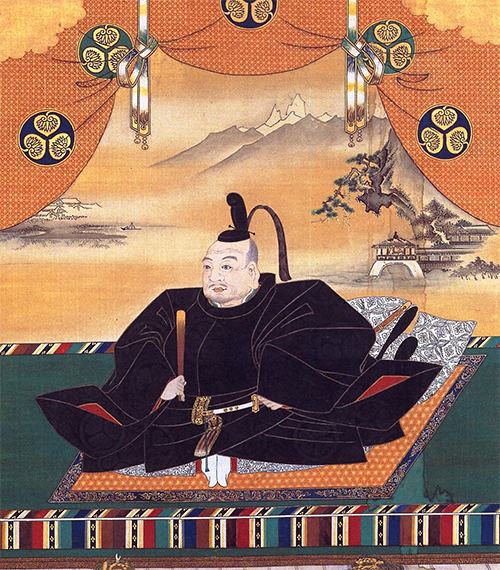Shogun: The Military Rulers of Feudal Japan
By Renshi Aaron Kenneally

Tokugawa Ieyasu 1543-1616
The term "shogun" carries an air of authority, leadership, and military prowess. In the history of feudal Japan, the shogun was a central figure who held immense power and influence. Often referred to as the supreme military commander or the de facto ruler, the shogun was pivotal in shaping Japan's political, social, and cultural landscape. In this article, we will explore the shogunate's origin, the shogun's role, and the impact of these military rulers on Japanese history.
Origins of the Shogunate
The concept of the shogunate in Japan can be traced back to the late Heian Period (794-1185) when the imperial court in Kyoto began to lose control over the regional lords (daimyo) and powerful landowning clans. As these local leaders asserted their autonomy, they built armies and consolidated their power, often in defiance of the central government.
During this period, the Minamoto and Taira clans were the two most influential clans. Their rivalry and the resulting Genpei War (1180-1185) marked a turning point in Japanese history. Minamoto no Yoritomo emerged as the victorious leader and established a new military government in 1192, marking the beginning of the Kamakura Shogunate.
The Role of the Shogun
The shogun was the highest-ranking military and political authority in Japan. Their role can be summarised as follows:
-
Military Commander: The primary duty of the shogun was to lead the country's military forces. This included defending Japan against external threats and maintaining internal order through military power.
-
Political Leader: Besides their military responsibilities, shoguns held significant political authority. They issued proclamations, collected taxes, and governed the provinces through appointed officials.
-
Centralised Control: Shoguns often sought to centralise power, thereby reducing the influence of regional lords and maintaining a semblance of unity across the country.
-
Appointments: Shoguns appointed loyal vassals and advisors to key positions within the government, the military, and the bureaucracy. The shogunate became a hierarchical structure with the shogun at its apex.
Different Shogunates in Japanese History
Throughout Japan's history, there were several notable shogunates, each with its unique characteristics and impact on the country:
-
Kamakura Shogunate (1192-1333): Founded by Minamoto no Yoritomo, this was Japan's first shogunate. It marked the shift of political power from the imperial court to the military government. The Kamakura Shogunate faced challenges from external invasions and internal strife.
-
Ashikaga Shogunate (1336-1573): The Ashikaga Shogunate, also known as the Muromachi Shogunate, saw a period of cultural growth and the spread of Zen Buddhism. However, it was also marked by political instability and civil wars.
-
Tokugawa Shogunate (1603-1868): The Tokugawa Shogunate, led by Tokugawa Ieyasu, ushered in a period of relative peace and stability known as the Edo Period. The shogunate enforced a strict social caste and isolationist policies to maintain control.
The Decline of the Shogunate System
By the 19th century, Japan faced internal unrest and external pressures from Western powers, particularly the United States. The arrival of Commodore Matthew C. Perry in 1853 marked a turning point. The Tokugawa Shogunate, unable to effectively respond to foreign demands, faced internal revolts and calls for reform.
In 1868, the Meiji Restoration led to the overthrow of the Tokugawa Shogunate, and Emperor Meiji was restored to power. Japan underwent a period of modernisation, Westernization, and political transformation, resulting in the abolition of the samurai class and the establishment of a constitutional monarchy.
Legacy of the Shogunate
The legacy of the shogunate system continues to shape Japan's history and culture. While the era of the shoguns ended with the Meiji Restoration, the influence of these military rulers on Japanese society is still evident today. The legacy includes:
-
Cultural Impact: The shogunate periods saw the flourishing of traditional Japanese arts, including tea ceremonies, Noh theatre, and Zen Buddhism. Many cultural practices and artistic traditions remain influential.
-
Feudal Values: The concept of loyalty, honour, and hierarchy that characterised the samurai class during the shogunate eras left an indelible mark on Japan's societal values.
-
Historical Significance: The shogunates represent distinct chapters in Japanese history, reflecting the country's evolution from a fragmented feudal society to a modern nation-state.
In conclusion, the shoguns of feudal Japan were influential military and political leaders who played a significant role in shaping the country's history. Their rule marked both periods of stability and times of turmoil. The legacy of the shogunates continues to influence Japan's culture, values, and historical identity, making the shoguns a central figure in Japan's rich and complex history.
Book a Free Trial Class at Bushido Karate Club
Bushido Karate Club is currently accepting new members. Contact us today to book a trial class in Douglas or Carrigtwohill and begin your karate journey. Places are limited so call today to avoid disappointment.
Tel: +353876307006






